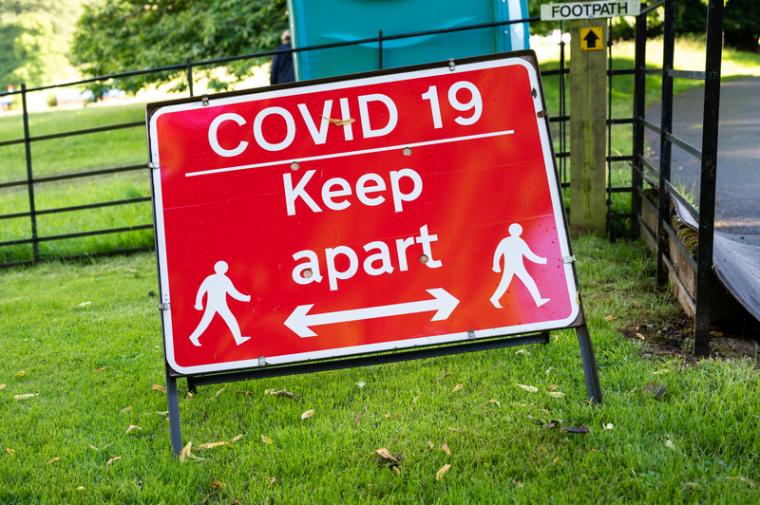

Risk management was already a growing topic in the sports world leading up to 2020. Background checks on coaches and volunteers became the norm, and the Safe Sport Act that passed Congress in 2017 was starting to take hold and was implemented across youth and amateur sports. Insurance offerings expanded and provided additional coverages that better suited the needs of event and facility operators.
Then the COVID-19 pandemic hit and changed the way everyone looked at risk management. Everything from cleaning procedures to scheduling practices and personal protective equipment become the hot topics. Background checks, insurance and Safe Sport will always be with us, but we all need to examine what we learned during the pandemic that will be part of the risk management equation moving forward.
Venue operators, and to some extent event operators, were forced to immediately look at their cleaning and health practices when the pandemic struck. Early recommendations from the CDC called for heightened cleaning practices and sanitation that went beyond what most organizations had been doing in prior years. While the CDC later reduced these recommendations as more information about the virus and how it transmitted became known, there were some clear upsides to these enhanced cleaning practices.
William Knox, the Director of Grand Park outside Indianapolis said, “During the pandemic, like many others, we increased our facility cleaning intervals. We fully intend to keep this in place as it also resulted in us getting high marks for the cleanliness of the facility.”
These new cleaning practices are resulting in a better customer experience overall with only marginal increases in cost. The net effect is that facilities are providing a better and safer environment that helps drive customer retention and draws in new customers. This is a clear example where quality risk management practices translate to increases in the bottom line.
Additionally, there were changes in event owners’ and rights holders’ contractual agreements with venues.
“Customers are looking to us to change language in our contract to protect them from future closures due to pandemics or similar events,” Knox noted.
The pandemic forced everyone to reexamine contracts and agreements to address the pandemic. While many contracts have built in force majeure clauses in their agreements, the legal industry was inundated with inquires about what was covered and what was not covered in these clauses. A legal gray area existed for many when it had to be determined if cancellations were caused by a government shut down or event operators having to cancel for reasons such as low attendance due to travel restrictions or people unwilling to play in events.
The pandemic forced many organizations to re-examine their contracts to build in protections for unforeseen events as well as to provide clear guidance to customers about how these situations will be handled. Event operators are now more conscientious about how these types of cancellations are handled and are looking to work with venues that will provide them with some level of financial security through refunds, credits or rescheduling, should something like a pandemic occur again.
New technology has also been a new focus brought about by the pandemic. Venues and event operators are always looking to find ways to make things safer and more efficient.
Stacey Hall, the Director of the National Center for Spectator Sports Safety and Security (NCS4) stated, “Patron screening technology is a hot topic among industry professionals to assess patron health and detection of prohibited items. Four technologies on the market appear to be in contention at most venues, including PatriotOne Technologies, XonarSafe, EVOLV and CEIA OpenGate.”
These technologies will help identify spectators who may have elevated temperatures as well as those attempting to bring contraband into a stadium or arena. While these technologies have been around for several years, temperature screening during the pandemic brought many of these technologies to the forefront. While most venues may have initially used them for temperature screening, they soon realized the broader use of these technologies to enhance venue security with less staff and lower long-term costs.
Technology has undergone adjustments during the pandemic and now also may have risk mitigation implications. Consider, for example, the uptick in live streaming. While many facilities offered it already, it became an excellent option for destinations and venues where spectators were limited – or not allowed altogether.
Additionally, as sports events around the country moved to limit contact between patrons and staff, many venues and events moved to contactless and cashless point of sales and ticketing. Removing cash transactions from the point of sales experience not only expedites transactions, which decreases lines and improves the customer experience, it also reduces opportunity for theft and human error in cash transactions.
The pandemic accelerated the movement of society to a more cashless environment, even though most experts in the area say we will never be completely cashless. With only cashless options, there is an immediate reduction in the number of people handling cash in the process of the sale through reconciliation at the accounting level. This drastically reduces error rates and opportunity for theft from employees.
We are starting to see, at least at the pro level, what are becoming known as “reverse ATMs,” which are machines into which cash can be fed, in exchange for a card that can be used much like a debit or credit card for transactions throughout the stadium or arena. Count on this development to stick around as well.
There was already a trend in the NFL and many other professional sports to move to electronic ticketing for games, and that trend will likely speed up post-COVID. Electronic ticketing provides more control to the team or venue issuing the ticket, and better security over the integrity of tickets. Electronic tickets reduce the occurrence of counterfeits as wells as ticket scalping. When tickets are tied to an electronic account as well as mobile phones, it provides a wealth of useful data to event and venue operators. It also allows venues to know exactly who used the ticket which in the case of a pandemic is vital for contact tracing.
A major topic of discussion not just in the sports community but across all businesses is the idea of a ‘vaccine passport.’ The topic is quite controversial in the United States but will likely be adopted in some format at venues across the country. CLEAR, a company first known to frequent fliers as a means to expedite security screenings at airports, has developed an app called Health Pass to verify vaccinations.
Oracle Park, home of the San Francisco Giants, and Citi Field, home of the New York Mets, have initially indicated that they would require proof of vaccinations but have backed away from that policy since announcing it. The Mets have instead incorporated vaccinated seating sections and the Giants now require either proof of vaccine or a negative test. It is likely this discussion will continue for venues and events alike about finding a balance between making visitors feel safe and comfortable and turning away much-needed revenue.
Across the board, event operators and venues have had to re-examine nearly all of their operations in light of the pandemic. While the endeavor was trying at times and not every organization survived, it provided an opportunity to update procedures and incorporate new technologies into operations. As with any crisis, it serves as a great learning opportunity and will make organizations stronger in the long run. SDM

